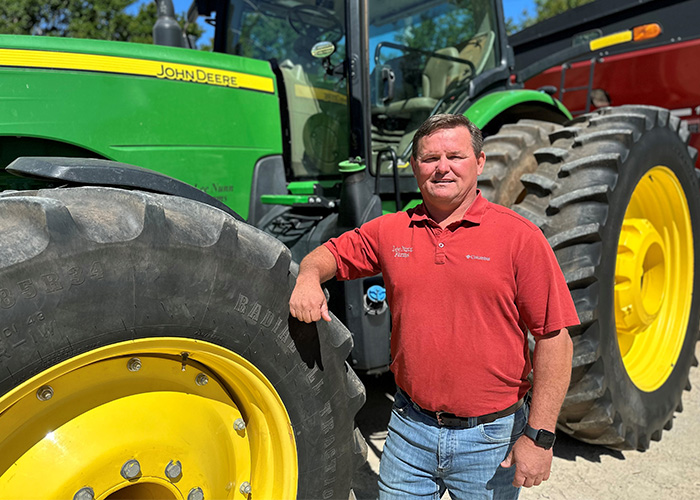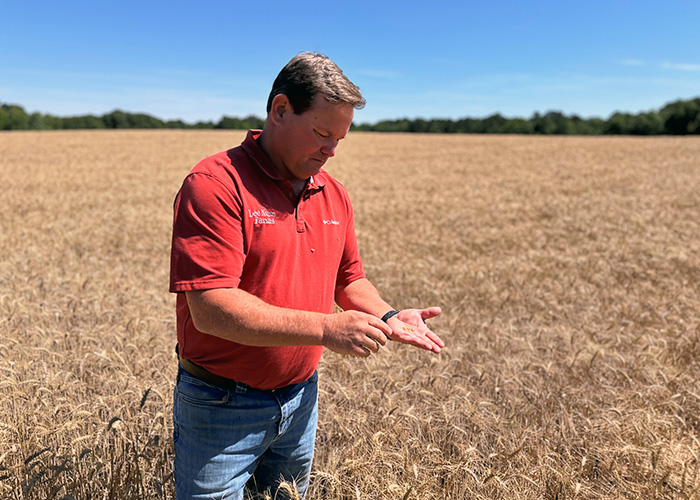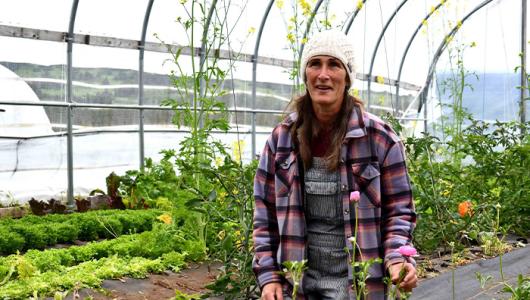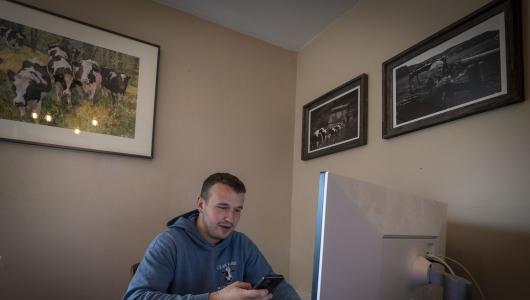It’s time once again for the USDA Farm Service Agency’s annual county committee elections. We're introducing you to current committee members across the nation throughout the nomination period, which runs now through Aug. 1, 2024. This week, meet Samuel “Lee” Nunn of Morgan County, Georgia.

Lee Nunn has been involved in agriculture for his entire life. Growing up on his family’s dairy farm he helped on the dairy farm as his grandfather neared retirement. Despite his passion for the agriculture industry, Lee took a break from farming to start his construction company until an opportunity to farm again came about in 2005.
In 2005, Lee took over 50 acres of farmland from a retiring farmer in his wife’s family. He began his agricultural journey by planting his first wheat crop and that’s when he first began his interactions with USDA’s Farm Service Agency. Fast forward nearly 20 years, he now farms 1,600 acres of soybeans, cotton, corn, wheat and winter field peas.
“It took luck, a lot of hard work, and a lot of people helping,” Lee said. “When I first got started, I would trade labor for borrowing another farmer’s equipment. You can’t just start a large farm from scratch, you have to work your way up to it.”
A Voice for the Local Community
Lee decided to run for a seat on his local FSA county committee to help other local farmers navigate FSA programs. He currently serves as vice-chairman of the committee. His goal is to be a voice for the local farming community with FSA. Educating other farmers and ranchers in his area is a vital role as a committee member.
County committee members are elected by their peers to serve as a direct link between the agricultural community and USDA. Producers on the committee help deliver FSA farm programs at the local level, and work to make federal farm programs serve the needs of local producers.
Each year, FSA accepts nominations for a certain Local Administrative Area and the LAA up for election rotates each year.

“It is important for everyone to be aware that FSA provides programs for everyone and that you do not have to be a large row crop farmer or a large cattle farmer to participate in FSA programs,” he said. “There are some programs that even the smallest agricultural operation can benefit from.”
Lee’s favorite part about being involved in his local committee is interacting with other farmers in his community, who represent various types of farming. As the only row-crop farmer on the committee, he values the conversations with fellow farmers and assisting FSA staff with local issues. He finds it rewarding to share his knowledge and input to support FSA in helping the local farming community.
“County committees are important because they represent the interests and voices of local farmers and the agricultural community,” he said.
Hands-On Advocates
Lee encourages other farmers to take on this important role, emphasizing the need for someone who is hands-on and a strong advocate for agriculture.
He said county committees are vital because they represent the voices of local farmers and the agricultural community and stresses the importance of having a diverse group of leaders to effectively address the needs of the community.
“Don’t always sit on your hands and wait on somebody else to do something,” he said. “Get out there, run and be a voice for agriculture locally, statewide, and nationally.”
More Information
For more information on FSA county committee elections, contact your local FSA office or visit fsa.usda.gov/elections.
Jay Ivey is the outreach and public affairs coordinator for FSA in Georgia.


